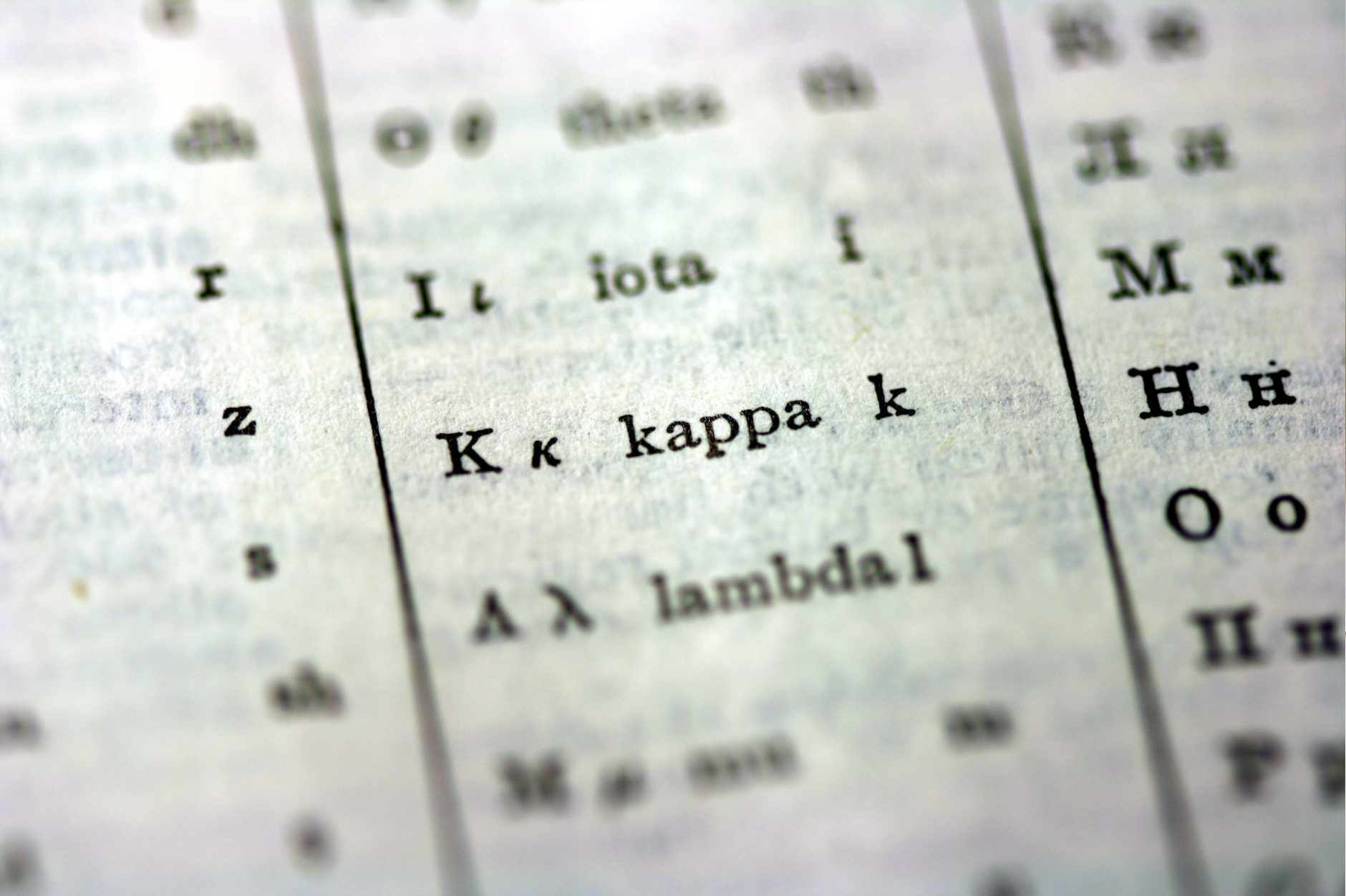Why is the letter 'k' so uncommon in French?
Posted by Josh on 29th Sept 2025 in the blog in the frequently asked questions category
When it comes to learning French, you'll probably have noticed that the French language, which shares an alphabet with English, also features a few things which you might find unfamiliar. Accents, for example - from the trema to the circumflex - are very rare in English, and typically only appear in loanwords - often from French.
You are, however, probably less likely to notice the opposite: things that exist in English but not - or barely - in French.
One of these is the letter 'k'. The eleventh letter of the alphabet appears more than ten times more frequently in English than it does in French, where it mostly appears in loanwords from English, such as 'le smoking' and 'le wokisme'.
So why is this the case?
The role of 'k'
Perhaps the question we need to ask is: Why is there a 'k' in English in the first place? After all, 'k' is pronounced the same way as two other letters - 'q' and (hard) 'c' - so it doesn't exactly fulfil a role that isn’t already taken by another letter. In fact, sometimes it seems completely superfluous, such as when it appears in its silent form in words as 'knock', 'knife' and 'know'.
As mentioned above, both English and French use the same alphabet. This alphabet actually predates both languages by hundreds of years, as it was the one used by the Romans for writing Latin. 'K' was taken from the Greek letter 'kappa', but it was only used sparingly, and it didn't take long for the Romans to stop using it whatsoever. After all, they already had 'c'. Romance languages, like Spanish, Italian and, of course, French, evolved from later forms of Latin - by which point the letter 'k' was a distant memory.
Germanic languages, on the other hand, continue to use the letter 'k' until this day, even though they didn't to begin with. This is because the letter 'c' was being used to denote both a hard 'c' sound and a soft 'c' sound. In the Middle Ages, this led to much confusion, and so scribes in Germany and Scandinavia resurrected the letter 'k' to clarify the distinction.
The same happened in English after the Norman Invasion of England in 1066, as scribes sought to implement new spelling conventions on a rapidly changing language. The irony is that it was the Normans, who hailed from what is part of modern-day France, who introduced 'k' to English. That said, the letter 'k' was rarely used in words of French or Latin origin, and was mostly confined to words of Anglo-Saxon or Norse origin, which is why it is still quite rare, even in English (the fifth rarest letter in the alphabet, to be precise).
Celtic languages, such as Cornish, Gaelic and Breton, also use the letter 'k' - which is why you may have noticed that some place names in Brittany contain the letter 'k' when referred to by their Breton name (Concarneau is 'Konk-Kerne' in Breton, for instance, and Quimper is 'Kemper').
Thanks largely to the predominance of English as an international language, and the introduction of English loanwords into French, more and more French words now use the letter 'k' - although the Académie Française will often seek to 'Francify' them, such as turning 'le week-end' into 'la fin de semaine' or 'le skyscraper' into 'le gratte-ciel'. French keyboards, while different from the 'qwerty' keyboards used in English-speaking countries, contain the letter 'k'; and French baby names, due to influence from American culture and immigration from places where the 'k' is more common, are increasingly featuring the letter 'k'. It looks like 'k' is finally making a comeback - or rather, retour - in French.
Check out some of our other blog posts!
How to make nouns plural in French
Posted on by Josh in the learning french categoryThis is how you change a noun from singular to plural
Read moreA Guide to the Different Varieties of French Used Throughout the World
Posted on by Kafi in the french culture categoryFrench is one of the most widely spoken languages in the world, spoken in five continents, and influenced by the culture and environment of each of them in its own way.
Read moreHave fun learning French Today
People from all over the world enjoy learning French with Alexa Polidoro’s popular French audio and video lessons.




